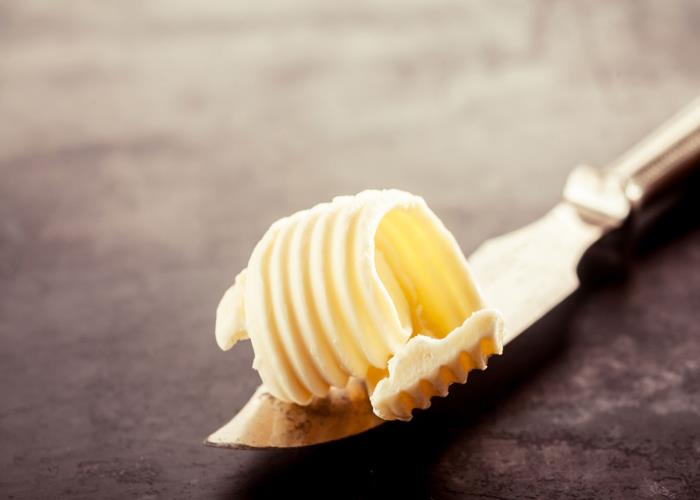Why butter is better

Is it really healthier to eat margarine instead of butter? Miranda York explains why she thinks butter beats margarine every time.
You can’t beat a good slice of bread and butter. A slick of thick, creamy goodness on a wedge of crusty white bread is an indulgence I will never tire of.
But would you spread margarine so generously on your crumpets and scones? Would you consider making bread and margarine pudding for a Sunday dinner treat? Or whip up a hollandaise with a butter substitute? I think not.
But, of course, I’m biased. I’m told I used to eat the good stuff straight from the tub as a child. My long and luxuriant love affair with butter thus began very early on and the passion has never waned.
Butter or marg?
The war continues to rage between butter lovers and margarine converts - the first camp gushing about the heavenly taste and eating nature’s bounty, the other proclaiming health benefits and low-fat diets.
But is margarine as healthy as we are led to believe? Let’s take a look at the history of butter’s foe…
A little history
It's perhaps ironic that margarine was invented in the very place renowned for drowning food in lashings of liquid gold: France. In 1869, Napoleon III offered a prize to anyone who could make a satisfactory substitute for butter. (They were running a bit short and he wanted something cheap to feed his soldiers and the poor.)
French chemist Hippolyte Mège-Mouriès rose to the challenge and invented a substance he called oleomargarine, the name of which soon became shortened to the trade name "margarine". The fact that this substitute was made by a chemist rather than a chef should already be setting off alarm bells. But I digress…
The principal raw material in the original formulation of margarine was beef fat. This changed in the early 1900s when French and German chemists developed hydrogenation, which allowed liquid vegetable fats like sunflower, cottonseed and palm oil to be used for margarine, as they are today.
By passing hydrogen through vegetable oil in the presence of a nickel catalyst, the oil became a solid. Doesn’t that just sound delicious?
Back in old Napoleon’s time, margarine was just a cheap substitute for the real deal, but nowadays it's frequently bought in the belief that it is a healthier option than butter. Boy those ad men have done a good job!
Health benefits?
Margarine may be lower in saturated fat and contain little or no cholesterol, but in recent years it has been shown that the trans-fats contained in partially hydrogenated oils (used in typical margarines) significantly raise undesirable cholesterol levels.
Trans-fat-free margarines have since been developed but these products are still likely to contain colourings, artificial flavours and preservatives.
By contrast, butter is sweetly simple. It naturally contains vitamins A, E and D as well as essential fatty acids and trace minerals such as selenium, a powerful antioxidant.
If that’s not enough to convince you, just observe the diets of our friends over the pond: the French eat four times as much butter as the Americans, but they're 30-40% less likely to die from heart disease. Oui, c’est vrai!
It’s strange that in an age where people shout about the benefits of organic, locally sourced produce that many a “foodie” still scrapes a bit of mass-produced marg on their artisan bread.
Of course, if your concerns are medical, then steer clear of all fatty foods (including margarine) but in general moderation is the key.
So take a little care when walking down the supermarket aisle of spreads. It’s a minefield out there: a slippery one.
Also worth your attention:
The secret killer in your food
Is it your fault Britain is obese?
Comments
Be the first to comment
Do you want to comment on this article? You need to be signed in for this feature